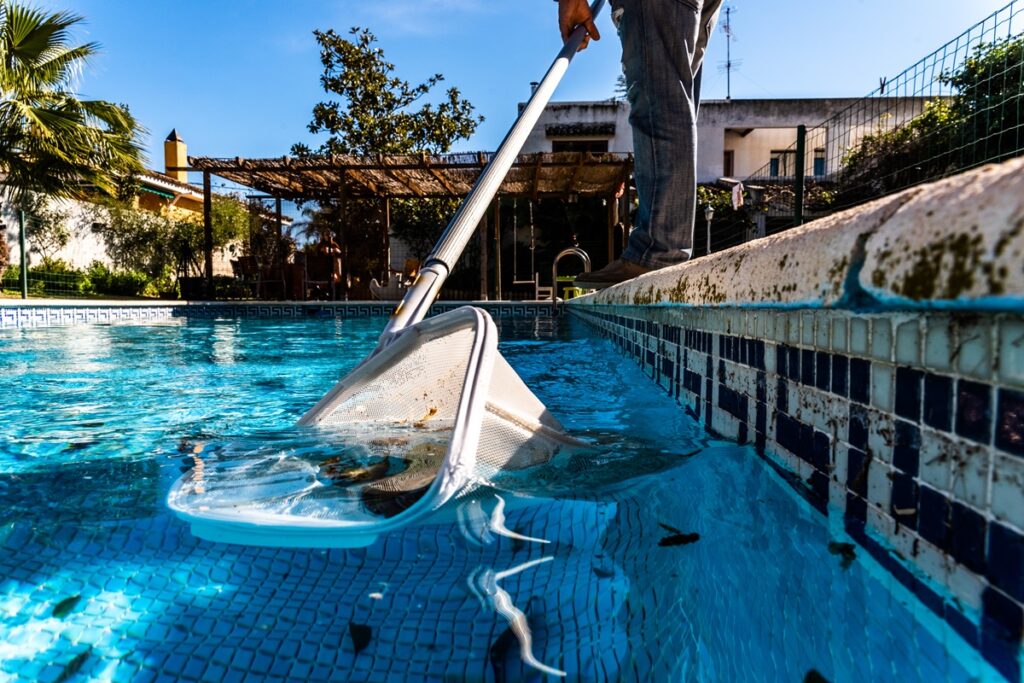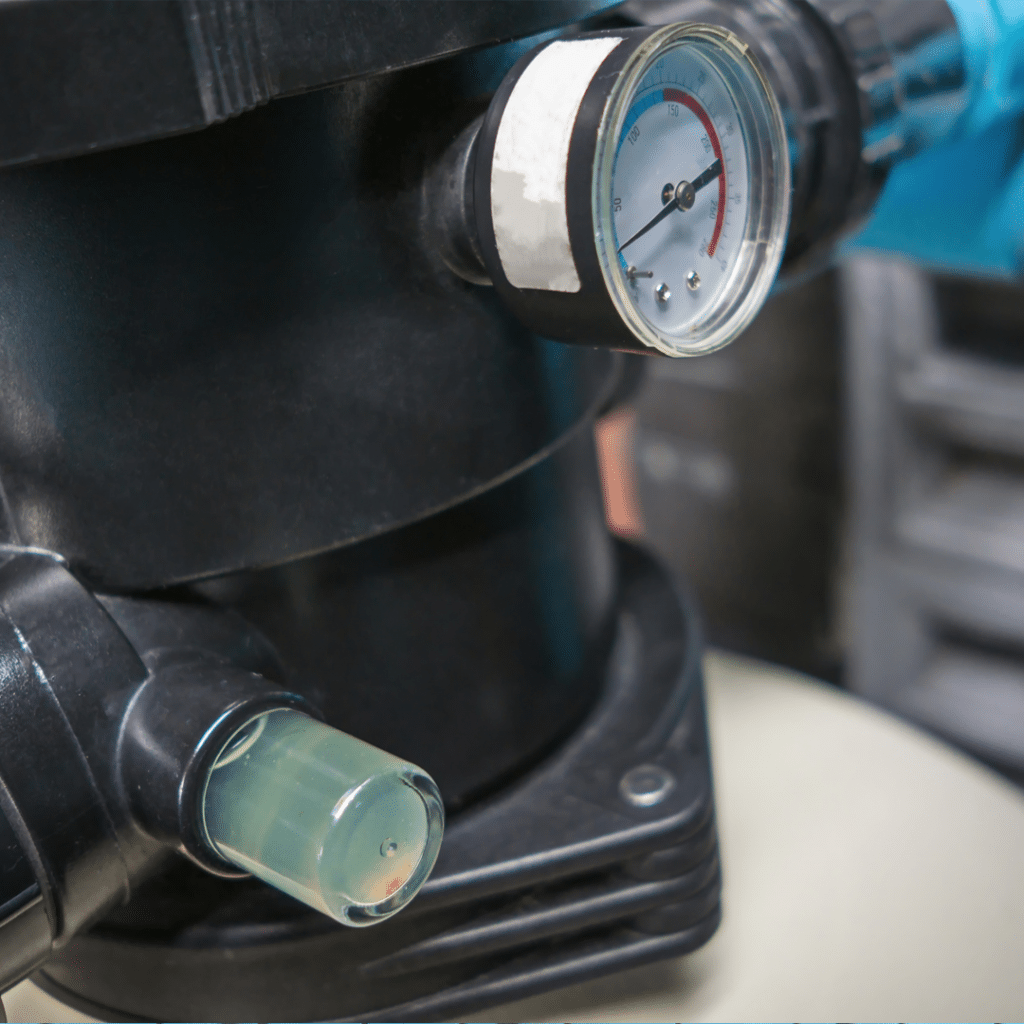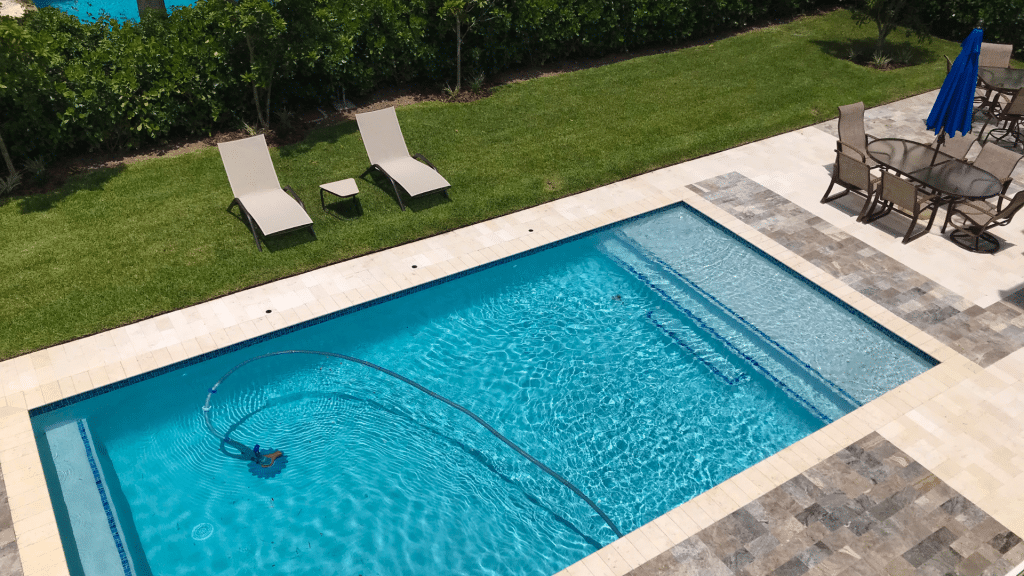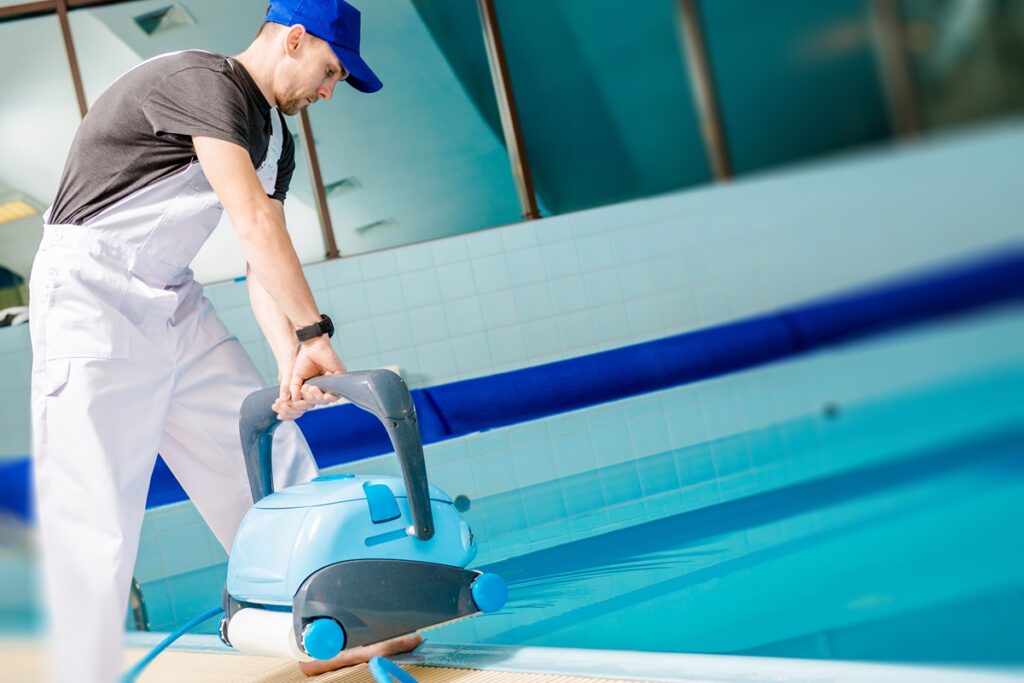Pool clean up
Pool cleanup involves a series of actions designed to maintain or restore the quality and safety of pool water. This process includes removing debris like leaves and dirt, vacuuming the pool floor, cleaning filters, and balancing chemicals to ensure optimal pH levels. Additionally, pool walls and surfaces are scrubbed to prevent algae growth. Effective pool cleanup keeps the water crystal clear and hygienic, enhancing the overall swimming experience and prolonging the life of the pool.
Maintaining a clean pool ensures the health and safety of swimmers. Regular pool cleaning prevents the buildup of harmful bacteria and debris, ensuring the water remains clear and inviting. Services specializing in pool cleaning are available in Orange, CA, providing expert care and maintenance for local residents.

Best Pool Clean Up Near Me Orange, CA
Top-rated pool cleaning services in Orange, CA, offer exceptional care to local swimming pools. These services stand out due to their advanced equipment, effective cleaning techniques, and excellent customer service. Clients in Orange, CA, consistently praise these companies for their reliability and thoroughness. Testimonials highlight the professionalism of the staff and the pristine condition of pools following service, emphasizing customer satisfaction and trust in these top performers.
Pool Smart OC is a trusted pool cleaning company based in Orange, CA, renowned for its dedication to maintaining pristine pool conditions for its clients. Our company leverages state-of-the-art equipment and proven cleaning methods to ensure every pool is hygienically clean and visually appealing. The commitment of Pool Smart OC to quality service and customer satisfaction makes it a preferred choice for pool owners seeking reliable and efficient pool maintenance solutions in the area.
How to Clean Up Pool
Cleaning a pool effectively requires a systematic approach and the right tools. Here is a step-by-step guide:
- Remove Debris: Use a skimmer to remove leaves and other floating debris from the water’s surface.
- Clean the Pool Floor: Vacuum the pool floor to remove dirt and sediment. This is essential for both in-ground and above-ground pools, though the equipment may vary.
- Brush the Walls and Steps: Scrub the pool’s walls and steps to prevent algae growth. For in-ground pools, stiffer brushes are needed due to their concrete surfaces, while softer brushes are suitable for above-ground pools to avoid damaging the liner.
- Check and Clean Filters: Regularly clean the pool’s filtration system to ensure it operates efficiently.
- Balance the Water Chemistry: Test the water and adjust the pH, alkalinity, and chlorine levels to maintain proper chemical balance.
Recommended Products and Tools:
- Pool vacuum cleaner specific to pool type (manual or automatic).
- Skimmers for surface debris.
- Brushes that correspond to the pool’s construction material.
- Water testing kits for pH, chlorine, and other chemical levels.
Following these steps will help maintain a clean and safe swimming environment in any pool, enhancing the longevity of the pool and the health of its users.

What Cleans Dirty Pool Water?
Keeping pool water clean involves several crucial elements that work together to ensure a healthy swimming environment:
- Chemical Treatments: Chlorine and bromine are the primary chemicals used to sanitize pool water by eliminating bacteria and other pathogens. Chlorine is widely used for its effectiveness and cost-efficiency, while bromine is preferred in hotter water conditions and spas due to its stability at higher temperatures.
- pH Balance: Maintaining the correct pH level (typically between 7.2 and 7.8) in pool water is vital. Proper pH levels ensure that sanitizers like chlorine work effectively and also prevent corrosion of pool equipment and irritation to swimmers’ skin and eyes. Regular testing and adjustment of pool water with pH increasers or decreasers are essential to maintain this balance.
- Filtration Systems: The filtration system plays a key role in keeping pool water clean. It removes physical contaminants and debris, circulating the water through filters that capture dirt and particles. Regular cleaning or replacement of filter cartridges as required helps maintain the effectiveness of the filtration system, ensuring clear and clean water.
Together, these components work to provide a clean, safe, and enjoyable swimming environment, preventing the water from becoming cloudy or unsafe for swimmers.

Is it Cheaper to Clean Your Own Pool?
Deciding whether to clean your own pool or hire professional services involves understanding both upfront and hidden costs associated with each option:
-
Cost Comparison:
- DIY Pool Cleaning: Initial costs include purchasing necessary equipment such as vacuums, skimmers, brushes, and a testing kit. Ongoing expenses involve chemicals like chlorine and pH balancers.
- Professional Services: Typically charge a recurring fee that covers labor, equipment use, and chemicals. Costs can vary based on pool size, condition, and frequency of service.
-
Hidden Costs of DIY Cleaning:
- Equipment Investment: High-quality pool cleaning tools can be costly.
- Chemical Storage and Safety: Proper storage facilities for chemicals are necessary to ensure safety and compliance with local regulations.
- Time and Effort: The significant time commitment required for regular maintenance can be considered an indirect cost.
-
Scenarios Favoring Professional Cleaning:
- Large or Complex Pools: Professional cleaners have the expertise and equipment to efficiently handle large or unusually shaped pools.
- Busy Lifestyle: For those with limited time, professional cleaning ensures the pool remains in good condition without personal time investment.
- Regular Maintenance Needs: Professionals can spot and address maintenance issues before they become costly repairs, potentially saving money in the long run.
While DIY pool cleaning might seem less expensive at first, the time, effort, and potential for overlooking important maintenance can make professional cleaning a more cost-effective choice in many scenarios.
What Does the Cleaning of Swimming Pool Include?
Professional pool cleaning encompasses a variety of services designed to maintain the pool’s cleanliness and functionality:
Routine Cleaning Services:
- Skimming: Removal of leaves and debris from the water’s surface.
- Vacuuming: Suction of dirt from the pool floor.
- Filter Cleaning: Ensuring filters are free from debris to maintain efficient water flow and cleanliness.
- Chemical Balancing: Adjusting chemicals like chlorine and pH levels to keep the water safe and clear.
Occasional Deep Cleaning Services:
- Acid Washes: Removing stains and build-up from pool walls and floor that regular cleaning cannot address. This process involves draining the pool and applying a diluted acid solution to surfaces.
- Shock Treatments: High doses of chlorine are added to the water to break down contaminants like algae, bacteria, and chloramines.
These comprehensive cleaning tasks ensure that pools not only look inviting but are also hygienic and safe for everyday use. Regular maintenance and occasional deep cleans prolong the life of the pool and enhance the swimming experience.

How Often Should a Pool Be Cleaned?
The frequency of pool cleaning depends on several factors and involves a range of maintenance activities to ensure the water remains clean and safe:
Routine Maintenance Recommendations:
- Daily: Skimming the surface for debris and checking water chemistry to ensure proper sanitizer levels and pH balance.
- Weekly: Vacuuming the pool floor, brushing walls and steps, and checking filter pressure. Chemical adjustments are made as needed.
- Monthly: Thorough inspection of pool equipment, cleaning of filters, and shock treatment to break down organic contaminants and refresh the water.
Factors Influencing Cleaning Frequency:
- Usage: Pools that are used more frequently require more regular maintenance to manage the increased introduction of contaminants.
- Location: Pools in areas with high debris (e.g., trees, dust) or those exposed to extreme weather conditions may need more frequent cleaning.
- Type of Pool: In-ground pools typically have different maintenance needs compared to above-ground pools, especially concerning structural integrity and type of filtration system used.
Adhering to these guidelines helps maintain the pool’s aesthetic appeal and functional integrity, ensuring it remains a healthy and enjoyable environment for all users.
How Do I Check the Cleanliness of My Pool?
Ensuring your pool remains clean involves regular checks and understanding key indicators of water quality and cleanliness:
1. Visual Inspection:
- Clarity of the Water: Clear water is a primary indicator of a clean pool. Cloudiness or discoloration suggests contamination or chemical imbalance.
- Condition of the Pool’s Surfaces: Check for algae growth, stains, or visible debris on the pool’s walls, floor, and in corners.
2. Testing Water Chemistry:
- pH Level: The ideal pH level for pool water is between 7.2 and 7.8. This range ensures that sanitizers work effectively and minimizes irritation to swimmers’ eyes and skin.
- Sanitizer Levels: Regular testing for chlorine (1-3 ppm) or bromine (3-5 ppm) levels is necessary to maintain effective microbial control.
- Total Alkalinity: Maintaining total alkalinity (80-120 ppm) helps stabilize the pH and prevents rapid changes that could affect water quality.
3. Check Filtration and Circulation Systems:
- Filter Performance: Ensure that the filters are not clogged and are functioning correctly, as poor filtration can lead to dirty water.
- Water Circulation: Proper circulation ensures that chemicals are evenly distributed and that water is filtered effectively. Check that the pool’s pump and jets are operational and effective.
Regularly performing these checks helps identify issues before they become significant problems, maintaining the pool’s cleanliness and safety for everyone.

Final Thoughts
Maintaining a clean pool is crucial for both health and aesthetics. A well-kept pool ensures safe swimming conditions free from harmful bacteria and enhances the visual appeal of your outdoor space. Regular and thorough cleaning not only extends the life of the pool but also improves the overall swimming experience.
For residents of Orange, CA, entrusting your pool’s care to Pool Smart OC guarantees professional and reliable service. With our expertise in pool maintenance, you can enjoy a pristine swimming environment throughout the year.
To schedule a cleaning or for more information, contact us directly. Choose Pool Smart OC for expert pool care tailored to your needs.


